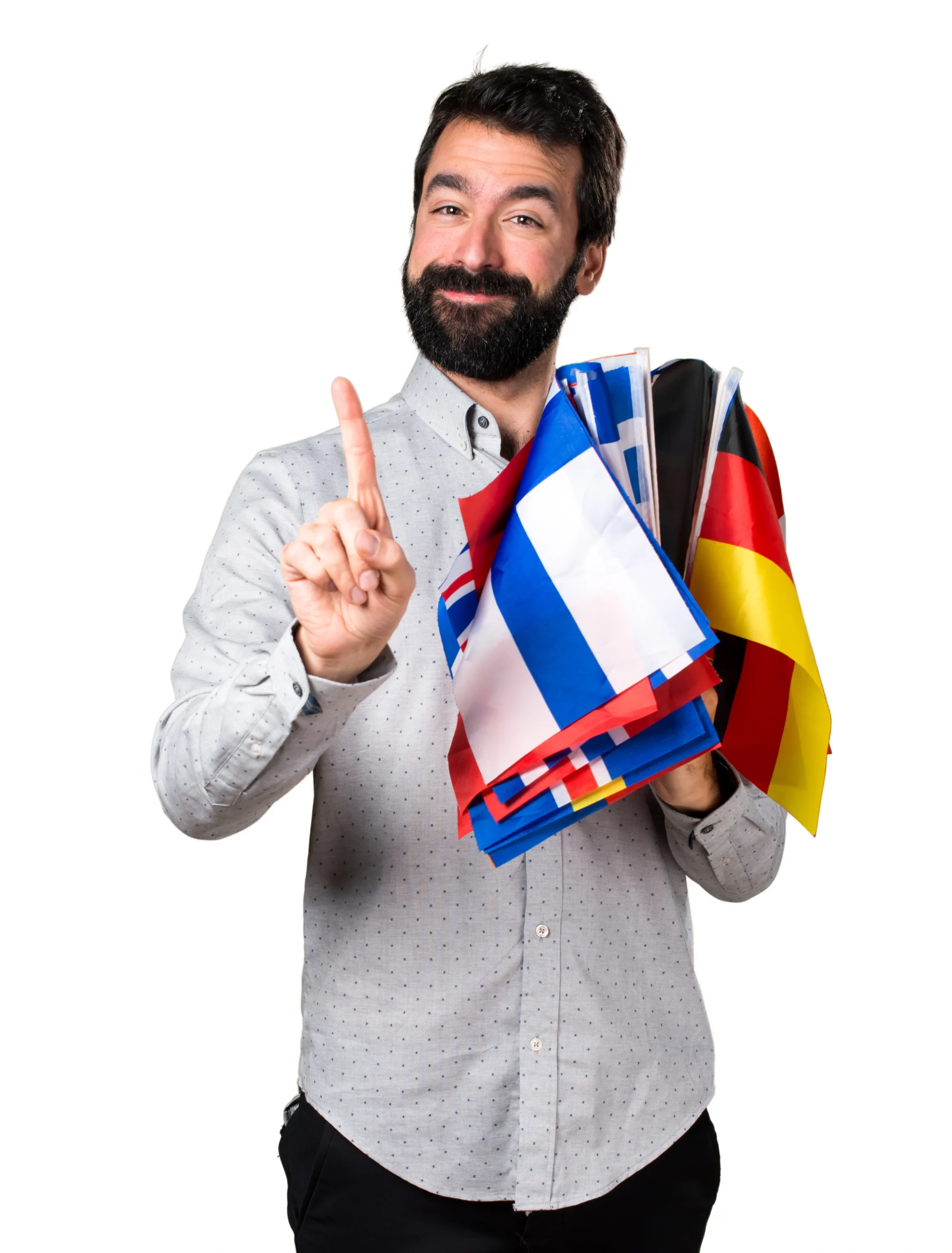How to Learn German Fast
How to Learn German Fast: Your Ultimate Guide to Rapid Progress
Learning a new language can feel overwhelming—but if you’re searching for How to Learn German Fast, you’re in the right place. This step-by-step guide covers proven strategies, resources, and tips designed to boost your German language learning journey, helping you learn German quickly, build your German vocabulary, grasp essential German grammar, and develop confidence speaking from day one.

Why Focus on How to Learn German Fast?
Every learner dreams of fluency. Whether you’re preparing for travel, career growth, or cultural immersion, you want results—fast. Focusing on How to Learn German Fast encourages:
-
Efficient use of time and energy
-
Clear goals that guide your progress
-
Confidence-building successes to stay motivated
By pursuing rapid progress responsibly, you can achieve communicative fluency sooner than you might think.
Core Strategies to Learn German Quickly
1. Set Specific, Time-Bound Goals
Start by defining what “fast” means for you:
-
Short-term: Understand basic greetings, order food, introduce yourself in 30 days.
-
Mid-term: Achieve A2 level (travel, daily tasks) in 3–4 months.
-
Long-term: Reach B1–B2 level (comfortably converse, read news) within a year.
By clearly framing How to Learn German Fast, you keep your efforts aligned and measurable.
2. Daily Immersion with German Vocabulary
Building a strong German vocabulary is essential:
-
Use spaced-repetition systems (e.g., Anki, Memrise) for 20 new words per day.
-
Focus on thematic lists: travel, groceries, daily routines.
-
Create flashcards with images or example sentences to reinforce context.
This daily habit accelerates reading, listening, and speaking skills.
3. Use Proven Language Learning Apps
Apps are a low-effort way to boost consistency:
-
Duolingo, Babbel, and Memrise offer structured lessons.
-
Add LingQ or FluentU to train with real-world content: videos, podcasts, transcripts.
-
Many apps provide speech recognition to refine your pronunciation.
These digital tools help you learn German quickly, wherever you are.
4. Focus on German Grammar Smartly
Understanding German grammar is key to competent communication:
-
Prioritize essential structures: verb conjugations, noun genders, accusative/dative cases.
-
Use pattern drills and write simple sentences daily.
-
Reference quality textbooks like “German Grammar in Use” or “Hammer’s German Grammar and Usage.”
This targeted approach makes your study sessions highly effective.
5. Listen and Watch German Daily
Passive learning is powerful for absorption:
-
Watch German-language shows or YouTube with subtitles.
-
Listen to German podcasts, news, or audiobooks.
-
Shadow sentences—repeat immediately after native speakers aloud.
Regular auditory input dramatically improves comprehension and spoken rhythm.
6. Speak from Day One
Speaking early builds confidence fast-
-
Use language-exchange platforms (Tandem, HelloTalk) to connect with German speakers.
-
Join meetup groups or find a tutor for structured speaking sessions.
-
Practice self-talk: narrate your daily routine in German or describe surroundings.
Even imperfect speech accelerates fluency.
7. Read and Write Every Day
Reading and writing reinforce grammar and vocabulary:
-
Read graded readers, short news articles (e.g., Deutsche Welle), or bilingual texts.
-
Keep a daily journal in German: reflect on your day in full sentences.
-
Write short compositions (e.g., emails, role-playing dialogs) and get corrections from natives.
This practice solidifies your learning and builds literacy.
Smart Resources to Learn German Quickly
Apps & Digital Tools
-
Duolingo – Fast, game-like practice with streak motivation.
-
Anki – Powerful flashcards for memorizing German vocabulary.
-
FluentU – Authentic video content with interactive captions.
Books & Textbooks
-
“Deutsch üben” series – Focused grammar worksheets.
-
“Enjoy German” graded readers – Short stories with vocabulary at your level.
Podcast & Audio
-
Coffee Break German – Conversational lessons suitable for beginners to intermediate.
- Slow German with Annik Rubens – Clear, slower speech for learners.
Online Communities
- Reddit: r/German – Advice, accountability, and resource sharing.
- Language forums (e.g., Duolingo community, Reddit, Tandem chats)
Structuring Your Week to Learn German Fast
| Day | Focus Area | Activity Example |
|---|---|---|
| Monday | Vocabulary + Grammar | 30 min flashcards, 30 min grammar drills |
| Tuesday | Listening & Speaking | 30 min podcast, 30 min conversation partner |
| Wednesday | Reading + Writing | 30 min graded reader, 30 min journal entry |
| Thursday | Mixed Practice | App review + video + penpal writing |
| Friday | Speaking Intensive | 60 min language exchange + reflection notes |
| Weekend | Cultural Exploration & Review | Movie, article, summary writing in German |
By planning sessions targeting German language learning, you maximize each skill area and maintain momentum.
Expert Tips to Speed Progress
- Use German in daily life: Label household items in German, set your phone’s language.
-
Learn cognates & false friends: Recognize similar words from English, but be cautious (e.g., “also” means “thus” in German).
-
Practice mindset shifts: Accept mistakes as learning opportunities.
-
Track your growth: Record your speaking or writing weekly to notice progress.
-
Stay accountable: Join language challenges or study groups.
These methods help you stay on track and truly learn German quickly.
Avoiding Pitfalls When Learning Fast
- Don’t skip grammar: A fluent speaker still needs structure.
-
Avoid burnout: Take rest days to assimilate new information.
-
Beware perfectionism: Melody and fluency are more important than flawless grammar.
With balance and consistency, How to Learn German Fast yields sustainable results without fatigue.
Realistic Timeline for Rapid Progress
- 1 month: Basic conversational phrases, essential grammar, A1–A2 vocabulary
-
3 months: Confident speaking in travel and daily life, A2 level grammar mastery
-
6 months: Comprehend news articles, hold B1-level dialogs, read short books
-
12 months: B2 level fluency—complex discussions, German culture, and media
Conclusion: Your Fast Track to German Fluency
- In summary, here’s How to Learn German Fast:
-
Set specific goals
-
Build vocabulary daily
-
Use language apps & real-world content
-
Master grammar basics
-
Listen, read, write, and speak every day
-
Leverage community and feedback
-
Maintain motivation through tracking and cultural connection
By integrating these methods and resources, you can accelerate your German language learning journey dramatically. Remember: it’s not just about hours studied—it’s about focused, varied, and consistent practice. So dive in, embrace mistakes, and speak from day one. You’ll be amazed how quickly you’ll get there.



That’s a great point about accessibility in shooting games! It’s cool to see platforms like mnl63 download apk making things easy with local payment options like GCash – smooth onboarding is key for new players, right? 👍
Your writing has a way of resonating with me on a deep level. It’s clear that you put a lot of thought and effort into each piece, and it certainly doesn’t go unnoticed.
Thanks I have just been looking for information about this subject for a long time and yours is the best Ive discovered till now However what in regards to the bottom line Are you certain in regards to the supply
Treat yourself! Hawkplayvip sounds pretty exclusive, right? I checked it out, and it’s got some really nice perks for loyal players. If you’re looking for the VIP experience, head to hawkplayvip!
K33game… never heard of it. Guess I’ll go check it out. Maybe I’ll find the next game I’m addicted to. k33game
Go99vina, never heard of it before today. Decided to give it a try. Registering was easy enough, and the bonus seemed okay. The game variety isn’t amazing, but there’s enough to keep you busy. Check it out – it’s go99vina.
Barganhar plataforma, huh? Sounds Portuguese! Let’s see if I can snag a good deal here. Time to test my luck! barganhar plataforma
Jilibet888login is where it’s at! Login is quick and painless which is a huge plus in my book. Definitely recommend giving it a try for your gaming needs. jilibet888login
SM777 Online Casino Philippines: The Best Legit Online Slots with Fast GCash Login & Register Experience SM777 Online Casino Philippines, the top destination for the best online slots Philippines. Join a legit online casino GCash platform featuring fast SM777 login GCash and seamless SM777 casino register. Play safely and win big today! visit: sm777
Digging into the ‘nesine com at yarışı yorumları’ to see what the real experts think. Time to place some smart bets instead of just guessing! Check it out here: nesine com at yarışı yorumları
Hey, just wondering ‘nesine yasal mı’? From what I understand, Nesine operates legally here, they seem to be legit and above board. nesine yasal mı
Okbet cc is where it’s at! The community is awesome and there’s always something exciting happening. Let’s gooo! Bet here okbet cc.